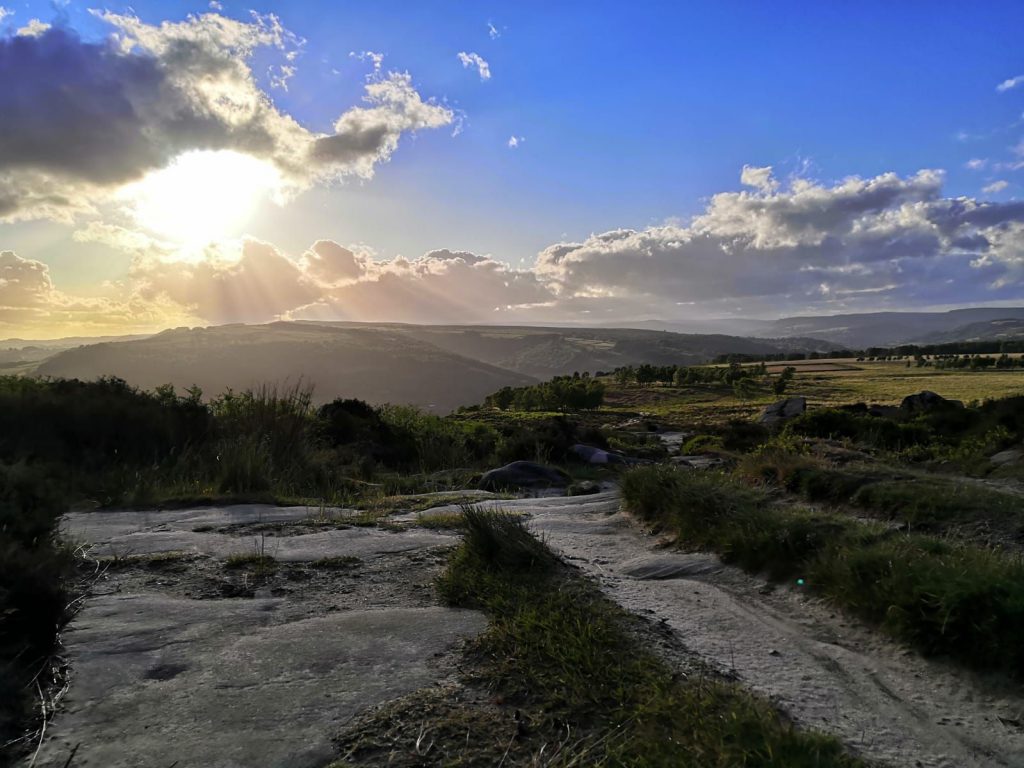 The remains of snow, perhaps.
The remains of snow, perhaps.
Just a moment to pause, on the top of a hill (somewhere in Yorkshire) to mark the cremation ceremony for Norman Trewhitt in Lancaster yesterday. I attended via a live Webcast since I was not able to travel, it’s not the same as being there and in person but better than nothing. This remote attending at cremations is the way many have to pay their last respects, currently. The grief of seeing those spaced chairs, all filled, no chance for hands to reach out for comfort and support. The ceremony was conducted beautifully by Paul and Kate. We all did our best Norman.
I offered incense and a candle, which wasn’t possible at the crematorium, and sang and observed moments of reflection and listened to the chosen music and watched as the curtain closed and the people processed outside. The webcast ended abruptly. Then with a cup of tea and a piece of cake leftover from Sunday lunch, I phoned up a fellow webcast watcher for ‘tea’.
This was the story for a couple of other cremations further south on Monday, a mother and the other for a dearly loved life partner. Such events, cremations where just a few can attend are happening all around the country, all around the world. We show our respect or affection and love for someone who has just died by coming to see their body or grave.
There is something to ‘paying one’s last respects’, to travelling to a gravesite, attending a Cremation Ceremony, a funeral, a scattering or interring of ashes. But there is never a LAST visit is there. What has been, a life known and shared remains and travels into the future as memories? That’s natural, normal and part of living. Part of being alive and forming attachments.
One day when I was young in training one of my fellow monks quoted a saying by Zen Master Dogen to me, ‘attachment and detachment’ he said ‘flow together throughout ones entire life’. I’ve never been able to find that reference although I probably didn’t look that hard. I find it comforting.
I’ll keep that thought beside me when, once again, I need to be reminded to be compassionate for myself, and for others.
Thank you kind person for sending me the photograph. I’ve lost track of the location, sorry. I thought it fitting since Norman was a keen walker and fellrunner.
